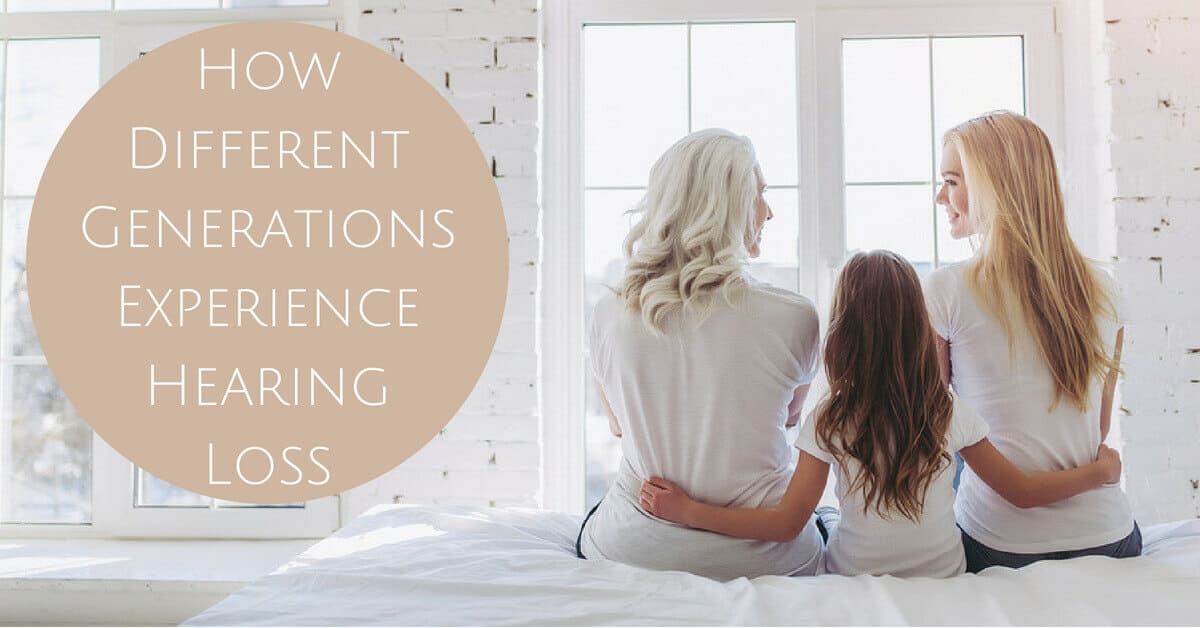
Although the physiological roots of hearing loss can be explained through the biological sciences, the actual experience of hearing loss has a lot to do with social psychology. Each person experiences hearing loss through the filter of her or his social environment as well as the features of the individual mind. One of the ways we can think about these social environmental factors is the difference between generations. Generations are heuristics for grouping people together, and some common examples are “The Silent Generation,” “Baby Boomers,” “Generation X,” “Millennials,” and “Boomlets.” Each generation has features that bind them together socially, thought of as a zeitgeist or social values that unify the group. Along with generations, age groups may experience hearing loss in different ways, as well.
The Silent Generation and Baby Boomers
One of the special features of these two generations is that they were born in a time before digital technology. Without being “native” to the technological advancements we enjoy today, they may have a range of difficulty adopting new technology. Some people from The Silent Generation and Baby Boomers are excellent at learning new technology and incorporating it into their lives. However, others may be reticent to adopt new technology or may have trouble learning how to work with more complicated features. Where these generational differences may intersect with hearing loss is at the point of assistive technology. Hearing aids have become quite advanced, and many are equipped with Bluetooth technology to sync the devices with phones, music, and television, just as one might with earbuds. However some people in The Silent Generation and Baby Boomers may be averse to these features. If you are encountering someone with hearing loss from these generations, be patient with them when it comes to technology and remember that technology is only helpful in that it improves our lives, making us more comfortable and able to move freely through the world.
Generation X
This group of people is coming into an age when the natural process of hearing loss is a new challenge. Now in their late 30s to early 50s, people in Generation X are just beginning to feel the effect of age on hearing ability. The transition from a wide range of hearing to limitations can be a difficult emotional process, often accompanied with existential struggle over growing old, more generally. Though hearing loss is a progressive process over the lifespan, these people may feel like they would have never encountered any problem at all. They may be surprised to find themselves in a group or environment where hearing is a challenge. Those on the younger end of this generation may also feel like few of their friends are experiencing hearing loss, leading to feelings of isolation or loneliness. If you encounter someone from Generation X who has hearing loss that is age-related, keep in mind that they may be going through a deeply emotional process, full of questions and uncertainty.
Millennials and Boomlets
Some people in this generation, ranging from the late teens to mid 30s, may be surprised to experience hearing loss. Though it is less common at this age (as well as those who are born with hearing loss in the youngest generation, sometimes called Boomlets), of course there are many young people who have hearing loss as well. One of the defining features of Millennials, contrary to their counterparts in the Silent Generation and Baby Boomers, is that they have grown up with access to all kinds of digital technology. Although many aspects of technological advancement can be helpful in the life of a Millennial, hearing damage from the use of very loud headphones and loud music environments is becoming more and more common. Along with this access to new technology is also the risk that technology is doing more harm than good. If you encounter someone with hearing loss from these generations, understand that they may be particularly disappointed to encounter hearing loss at such a young age and that they may be eager to seek technological solutions to their hearing needs.
Though each generation may have a different experience of hearing loss, each has the possibility to find a solution with assistive technology, such as hearing aids. Although the transition may be experienced differently, the result can be equally satisfying when clear hearing is reclaimed. To learn more about hearing loss and to schedule a hearing test, contact us at Pacific Northwest Audiology today.
